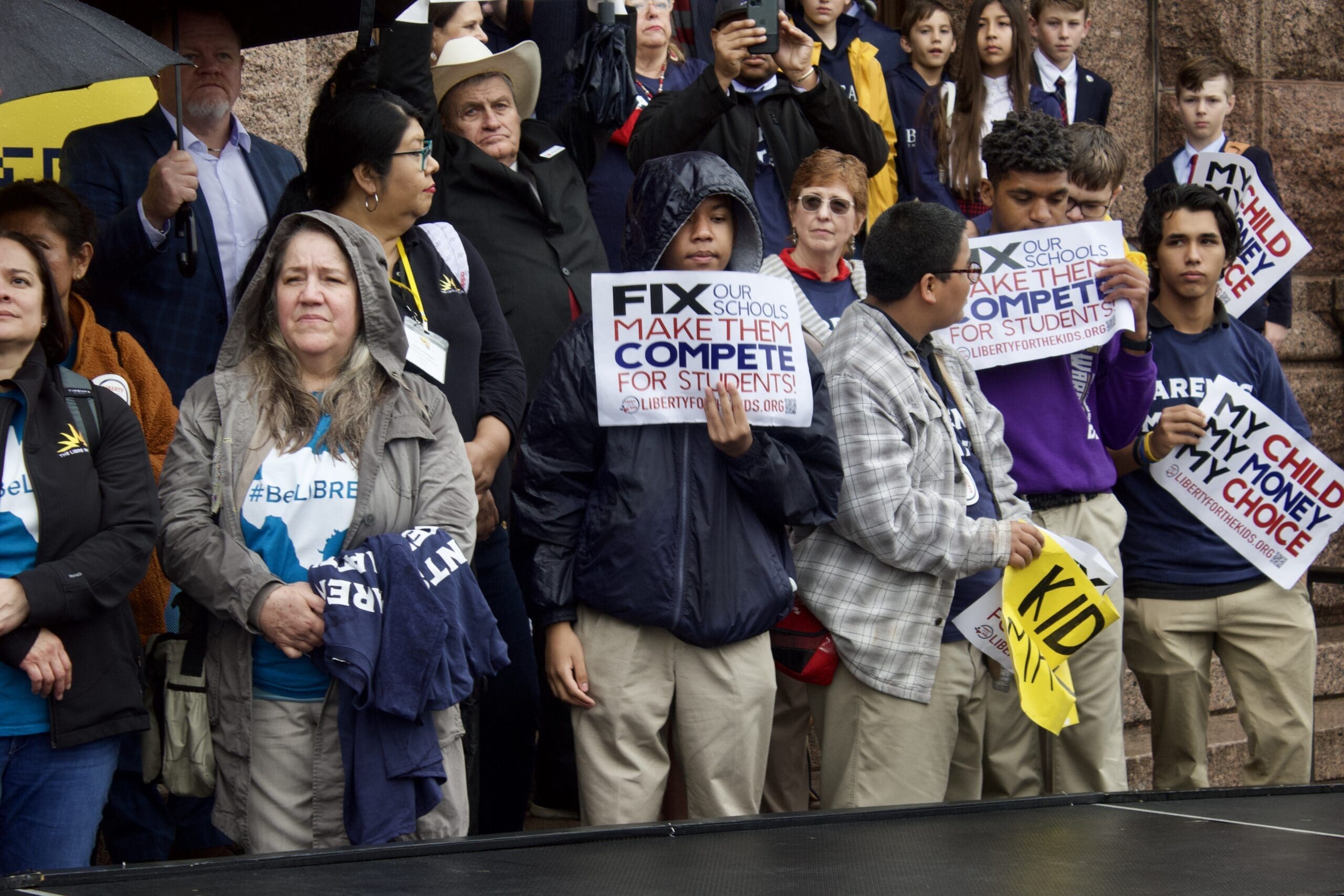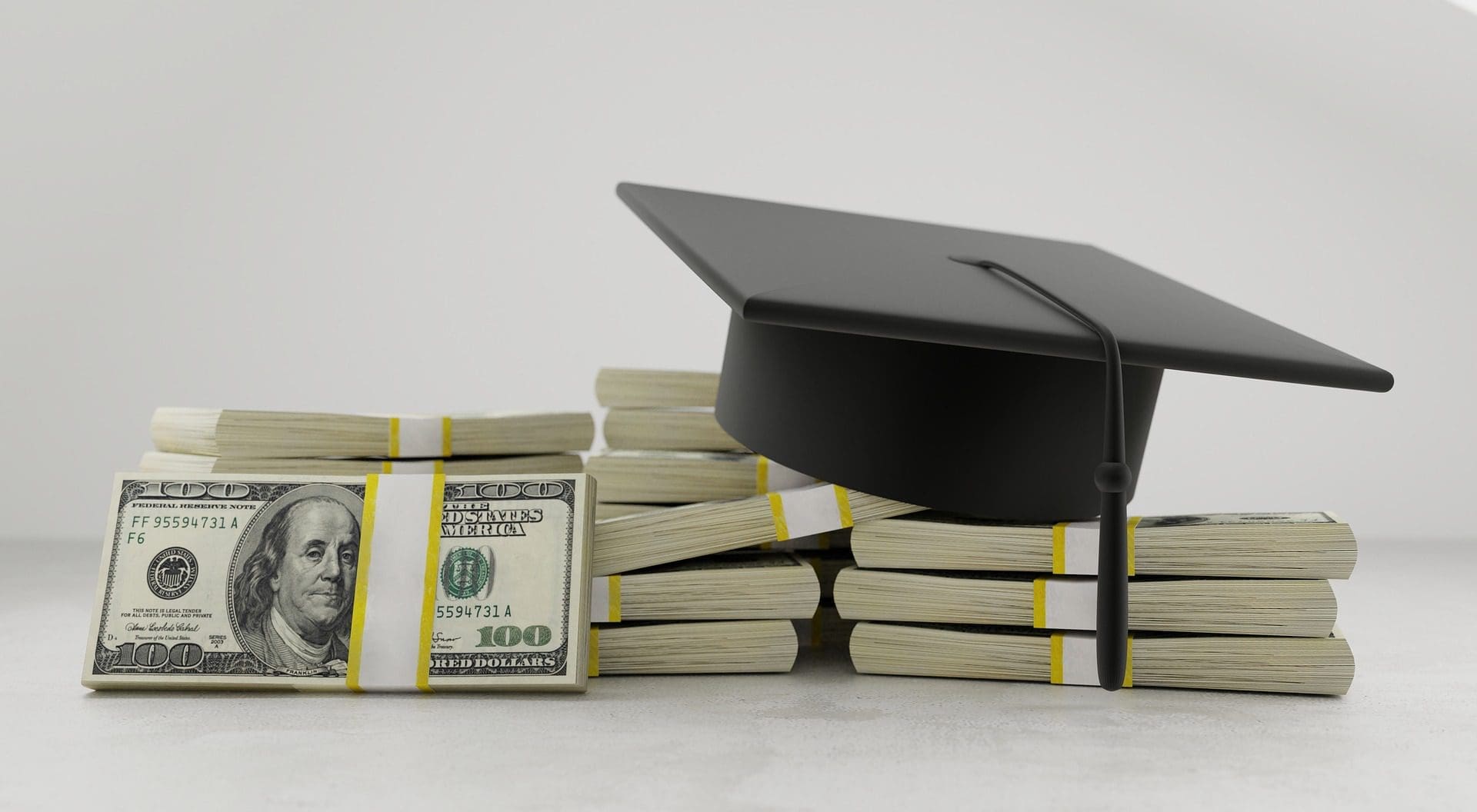The Texas Senate has passed school choice legislation for the fourth time in two years, gearing the hot-button proposal up for another showdown in the House.
Senate Bill 2, filed by State Sen. Brandon Creighton (R-Conroe), moved forward on third hearing Wednesday by a vote of 19-12, largely along party lines.
State Sen. Robert Nichols of Jacksonville was the sole Republican to join Democrats in voting against the measure. He voted against school choice in previous sessions as well.
Lt. Gov. Dan Patrick applauded the measure’s passage in a statement shortly after it was voted upon.
“The Texas Senate’s passage of SB 2 is the biggest launch of any universal school choice program in American history, with $1 billion in funding for 100,000 students,” stated Patrick. “Sen. Creighton has done an outstanding job authoring and carrying this bill.”
“This is the sixth time the Texas Senate has passed school choice, with every previous bill dying in the Texas House,” he continued. “The Senate will pass school choice over and over again until the House passes this bill. The days of limiting millions of Texas students to a one-size-fits-all approach are over.”
Lawmakers fielded several amendments during the prolonged debate, as anti-school choice protestors could be heard rallying just outside the upper chamber.
Before the vote, Creighton defended the measure and insisted that the future bodes favorably for school choice expanding nationwide.
“Last week, President [Donald] Trump signed an executive order encouraging school choice nationwide and announcing a plan to allow federal dollars to flow, eventually to the states, to enhance and support education freedom and school choice opportunities,” said Creighton.
“The momentum for education freedom and the support for our moms and dads and our guardians looking out for their kids and their students in their path in education and what’s best for them—that momentum has never been stronger than today,” he added.
State Sen. Royce West (D-Dallas) used his opportunity to ask questions by insisting that the origins of school choice were racist, stemming from a reaction to the Civil Rights era.
While Creighton agreed that some school choice proposals originated in such a way, he argued that most proposals since have done the opposite—prioritizing low-income, black, and Hispanic individuals.
“If kids are trapped in any all-white school, all-black school, all-Hispanic school, as they might have been segregated 60 years ago, this plan today allows them to not be trapped by zip code, but to have opportunities at many different education environments,” replied Creighton.
West also butted heads with Creighton over taxpayer-funded lobbying.
Although Creighton said he would not support an amendment floated by West to specifically bar school choice lobbyists from receiving taxpayer funds, he did express support for State Sen. Mayes Middleton’s (R-Galveston) legislation filed this session that would ban all taxpayer lobbying.
Middleton later clarified that the current Texas Code prohibits state appropriations, including those that go to charter schools and the proposed school choice program, from being used for lobbying.
Still, Middleton said that “local property taxes can be spent to hire lobbyists,” which is the point of his measure.
State Sen. Roland Gutierrez (D-San Antonio) took issue with the fact that private schools are still exempt from compliance with the School Safety and Security Committee in the measure, asking Creighton if he was willing to amend SB 2 to stipulate it.
Creighton similarly shot down the idea but said he was open to future legislation on the topic.
State Sen. Lois Kolkhorst (R-Brenham) said she had fears that SB 2 would eliminate rural school identity and spirit.
“No one in this legislation, the fraction of students that it supports, has to change any way of rural life, or… to leave a public school in any regard,” responded Creighton.
The Conroe lawmaker also answered questions from State Sens. Joan Huffman (R-Houston), Bob Hall (R-Edgewood), and other lawmakers before motioning to suspend debate and proceed to the second reading.
During the second reading, lawmakers voted on several amendments to the measure.
Amendment No. 1 by Creighton clarified that nonprofits or for-profits qualify under a provision allowing the Comptroller to decide on up to five education assistance organizations to assist parents with navigating the program. It was adopted without objection.
Amendment No. 2 by Creighton addressed “several requests from the Comptroller’s office,” including giving the official the authority to perform any duty assigned to an education assistance organization in the bill, including fees or other services.
The amendment also requires education service providers or vendors to register with the Secretary of State’s office to do business in the state. Some lawmakers who had voiced concerns about the possibility out-of-state vendors could take advantage of the program applauded the change.
Amendment No. 2 passed 20-11, despite some Democrat lawmakers taking issue with a provision giving the Comptroller final say over the grievance process as it relates to the program.
Other successful amendments by Creighton removed the Comptroller’s authority to approve education service providers that are not explicitly authorized, provided $500 to homeschool students with disabilities to use towards educational therapies, and clarified vague provisions in the measure.
Several Republican lawmakers also provided additional amendments to improve clarity on the measure.
SB 2 previously passed 9-2 out of the Senate Committee on Education K-16 quickly last week after just one hearing on the topic.
The measure would provide $10,000 annually per pupil to fund accredited private school tuition, textbooks, transportation, and other expenses. Families of students with disabilities would receive $11,500 annually per pupil, and families with homeschooled students would receive $2,000 annually per pupil.
Preliminary budget proposals allocate $1 billion toward school choice for the 2026-2027 school year. With the current amount funded, only up to 100,000 children out of Texas’ more than five million enrolled students would qualify for the program for the 2026-2027 school year.
Still, that number could be slightly more or slightly less when accounting for the fact that up to 80 percent of funds are prioritized for students from low-income households or with disabilities.
The vote comes three days after Gov. Greg Abbott’s State of the State Address, where he highlighted school choice as a top priority heading for the Legislature after failing to pass it in 2023 due to resistance in the House.
“Government-mandated schools cannot meet the unique needs of every student. But Texas can provide families with choices to meet those needs,” said Abbott.
The measure will now go to the Texas House, which has previously been a stumbling block for those advocating school choice in the state.
During the fourth special session of the 88th Legislature, the House failed to pass school choice as part of an amendment to a massive education spending measure, with a number of House Republicans breaking rank to see its demise.
Abbott successfully primaried many of those Republicans in last year’s primary elections.
The House’s preliminary budget proposal, which includes school choice funding, appears to indicate greater openness towards the agenda item this time around. However, it remains to be seen if public school funding will once again be tied to the proposal.





